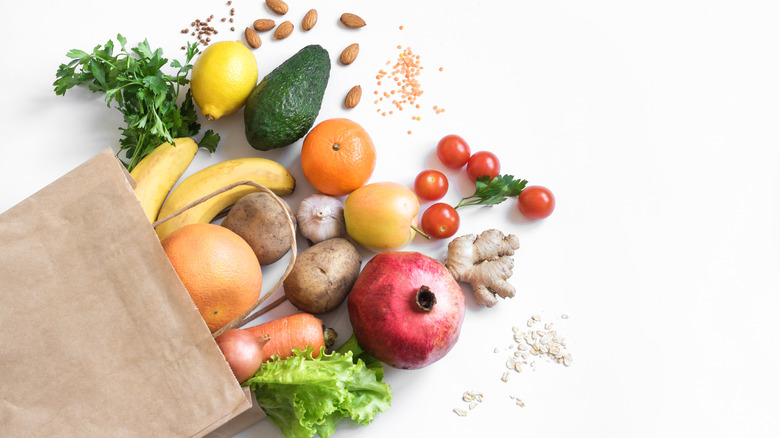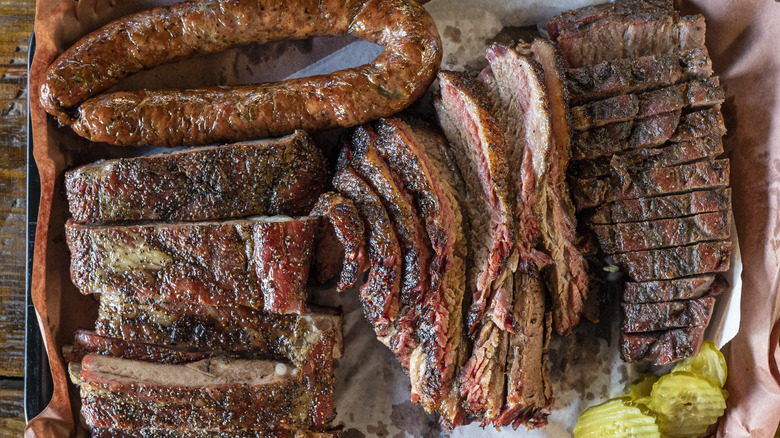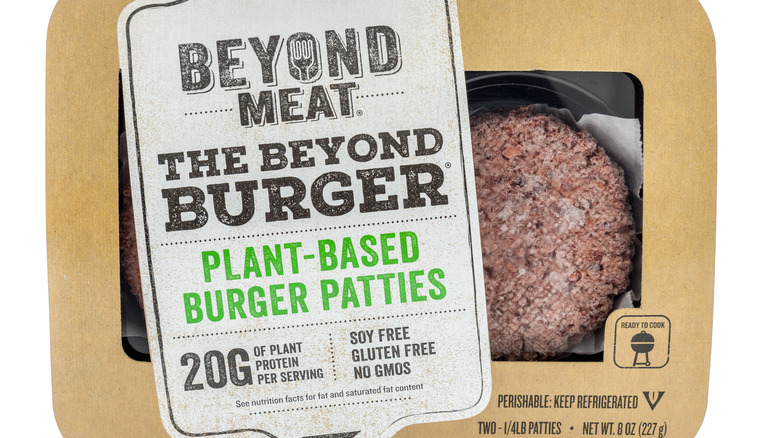Here's What Would Happen If Everyone On Earth Went Vegan
Imagine it: A vegan movement that captures the globe. Suddenly, no one eats any meat, seafood, eggs, cheese, butter, milk, or honey. Even ice cream holds little temptation for all the new vegans. Sound impossible? Maybe not, if you look at how much veganism has grown lately. Celebrities like actors Liam Hemsworth and Natalie Portman embrace the lifestyle and extol its virtues. Plus, supermarkets, delis, and even the general store on the corner now offer dairy- and meat-free selections.
In places like the United Kingdom, the number of people following a plant-based diet has risen by 340%, with about 500,000 Brits foregoing animal-based products. Twenty percent of these are 16- to-24 year-olds, indicating that the younger generation is embracing a new way of eating, according to BBC Good Food. As reported by Plant Proteins, the United States also contains a growing population of vegans — recent studies suggest that 6% of the country has adopted the lifestyle, compared to 1% in 2014.
While numbers indicate veganism is rising, carnism remains the predominant lifestyle. Globally, people consume about 350 million tons of chicken, steak, and other animal products, according to The World Counts. By 2050, the organization predicts this will reach 460 to 570 million tonnes. The problem with this food choice is it taxes the earth, as meat takes more energy, water, and land to create. For instance, it takes 75% more energy to produce than corn.
The price of eating meat
The United States could benefit from a diet change, too — people eat about 264 pounds of animal protein each year, reported Farm Doc Daily. That's about 11 ounces a day, and producing so much meat requires 40% of the country's corn crop and more than 60% of its soybean production for the livestock feed. If the world adopted the meat-heavy ways of the United States, the ability to feed the global population would decrease, and just 2.5 billion people out of the about eight billion worldwide would have food, per The World Counts.
According to The New York Times, the food generation required to feed the world contributes to one-quarter of the greenhouse gases fueling climate change. This includes plant harvesting, animal production, and packaging and shipping. The human food system chain contributes majorly to climate change, with livestock alone producing 65% of human-created nitrous oxide and releasing 150 billion gallons into the air per day, reported Vegan Food and Living. This toxic gas often comes from cows' digestive systems and is typically released through belching and farting (yes, the world could end because of cows passing gas).
Give up your burgers (at least sometimes)
Hannah Pamula, a graduate student at AGH University of Science and Technology in Kraków, Poland, spoke to the Sierra Club about the effects of people going vegan. "Even a slight reduction in our meat consumption would matter. Skipping one burger a week could already be of huge help," she said.
If the whole world opted for a vegan lifestyle, the global emissions would fall 70% by 2050, said a report in the Proceedings of the National Academy of Sciences. Plus, choosing a plant-based diet could save eight million lives and prevent $1.5 trillion in climate-related costs. "What we eat greatly influences our personal health and the global environment," said the study's lead author, Dr. Marco Springman. "Imbalanced diets, such as diets low in fruits and vegetables, and high in red and processed meat, are responsible for the greatest health burden globally and in most regions."
And here's some food for thought ... if you think veganism isn't for you, it isn't the only option. Going veggie would reduce food-related emissions by a whopping 63%.


